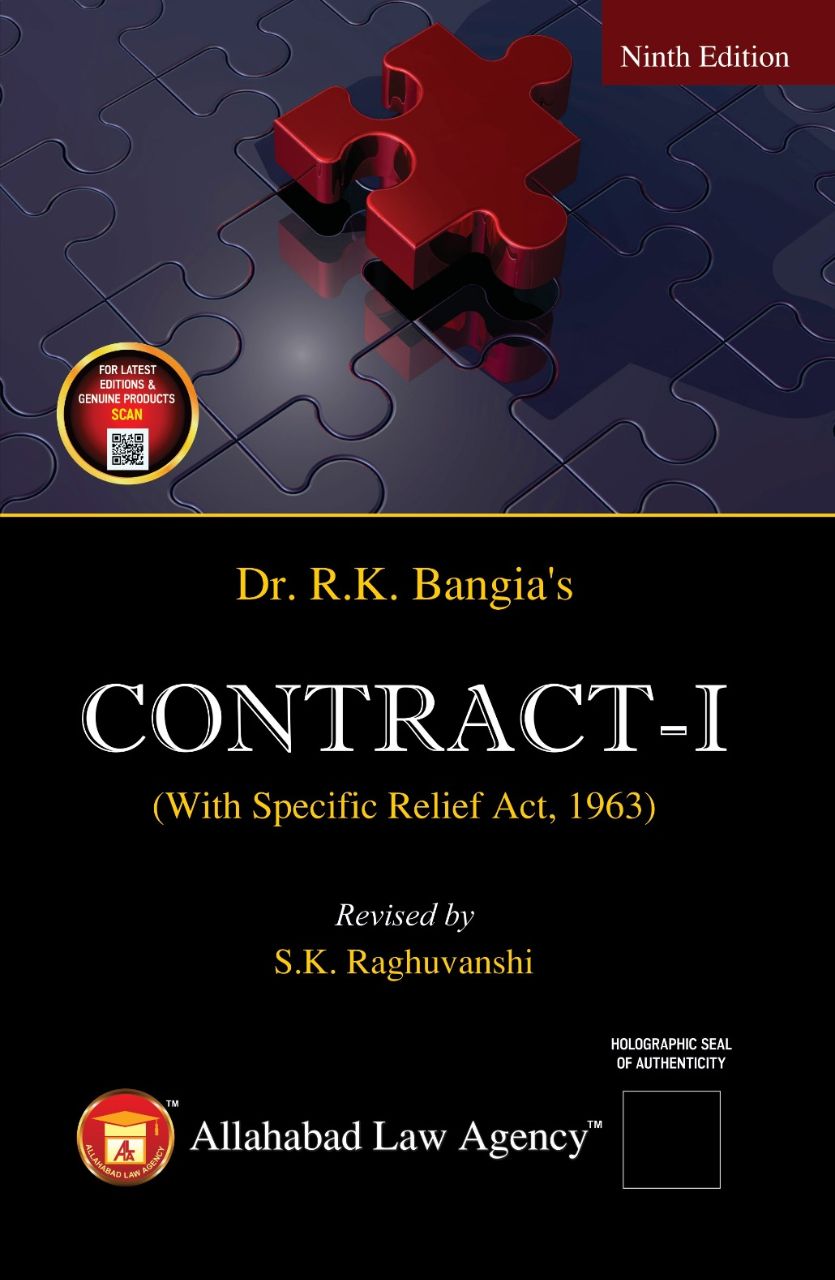CONTRACT I | R K BANGIA | 2024 | 9TH EDITION | BEST PUBLICATION |
ABOUT CONTRACT I
Contract I by Dr. R.K. Bangia is a law book that covers the legal aspects of contracts in India. The book is published by Allahabad Law Agency.
What’s in the book?
- The book provides a comprehensive overview of the Indian Contract Act I
- It explains the principles, provisions, and key cases of the Indian Contract Act I
- It helps readers understand how contracts are formed, performed, and breached
- It includes practical examples and case studies to help readers apply the law to real-life situations
Contract I are widely used in commercial law, and for the most part form the legal foundation for transactions across the world.
Common examples include contracts for the sale of services and goods, construction contracts, contracts of carriage, software licenses, employment contracts, insurance policies, sales or leases of land, among others.
A contractual term is a “provision forming part of a contract”.[7] Each term gives rise to a contractual obligation, breach of which can give rise to litigation, although a contract may also state circumstances in which performance of an obligation may be excused.
Not all terms are stated expressly, and terms carry different legal weight depending on how central they are to the objectives of the contract.[8]
Contracting is a specific phase within procurement. It includes creating, negotiating, and managing contracts.
Obligations created by contracts can generally be transferred, subject to requirements imposed by law. Laws regarding the modification of contracts or the assignment of rights under a contract are broadly similar across jurisdictions.[9]
Assignments are typically subject to statutory restrictions, particularly with regard to the consent of the other party to the contract I .
Contract I theory is a large body of legal theory that addresses normative and conceptual questions in contract I.
One of the most important questions asked in contract theory is why contracts are enforced. One prominent answer to this question focuses on the economic benefits of enforcing bargains.
Another approach, associated with Charles Fried in his book Contract as Promise, maintains that the general purpose of contract law is to enforce promises.
Other approaches to contract theory are found in the writings of legal realists and critical legal studies theorists, which have propounded Marxist and feminist interpretations of contract.
Attempts at understanding the overarching purpose and nature of contracting as a phenomenon have been made, notably relational contract theory.
Additionally, certain academic conceptions of contracts focus on questions of transaction cost and ‘efficient breach‘ theory.
Another important dimension of the theoretical debate in contract is its place within, and relationship to a wider law of obligations.
Obligations have traditionally been divided into contracts, which are voluntarily undertaken and owed to a specific person or persons, and obligations in tort which are based on the wrongful infliction of harm to certain protected interests, primarily imposed by the law, and typically owed to a wider class of persons. Research in business and management has also paid attention to the influence of contracts on relationship development and performance.[10][11]
Private international law is rooted in the principle that every jurisdiction has its own distinct contract law shaped by differences in public policy, judicial tradition, and the practices of local businesses.
Consequently, while all systems of contract law serve the same overarching purpose of enabling the creation of legally enforceable obligations, they may contain significant differences. Accordingly, many contracts contain a choice of law clause and a forum selection clause to determine the jurisdiction whose system of contract law will govern the contract and the court or other forum in which disputes will be resolved, respectively.





Reviews
There are no reviews yet.